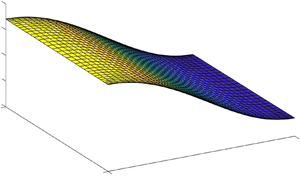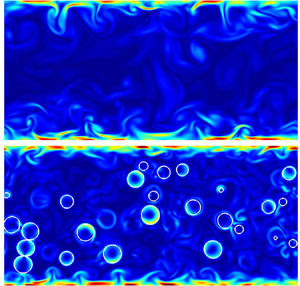Fluid flows coupled by a deformable solid layer (DS) may be found in both natural and industrial settings. To analyse the stability of such systems, we consider plane Couette flows coupled by a DS. The shear stress exerted by the flowing fluids on the DS leads to its deformation, coupling the motion in each fluid. We demonstrate that, as a consequence of the coupling and irrespective of the thickness of the DS, a viscous instability exists, which can lead to absolute instability at sufficiently high dimensionless speed of the lower plate. The predicted instability apparently arises due to the energy exchange between the fluids and DS via the tangential velocities at the interface. A linear elasticity model for the DS is employed, removing the non-physical growth rate predicted by previous models. A spatio-temporal analysis further reveals the existence of an absolute instability. Insight on this instability could be potentially utilised in manipulating mixing in microfluidic systems and membrane separation as well as for understanding morphologies evolving during membrane formation via interfacial polymerisation.



